SpaceX Successfully Launches Turkey's First Home-Grown Communications Satellite
Tuesday, 09 July 2024 13:13 SpaceX has launched a Falcon 9 rocket from Cape Canaveral Space Force Station on Monday night, carrying Turkey's first home-grown communications satellite.
The launch took place at 7:30 p.m. EDT after being delayed due to bad weather. The event was streamed online for viewers worldwide.
"All systems are looking good for today's launch of the @Turksat 6A mission from Florida. Weather
SpaceX has launched a Falcon 9 rocket from Cape Canaveral Space Force Station on Monday night, carrying Turkey's first home-grown communications satellite.
The launch took place at 7:30 p.m. EDT after being delayed due to bad weather. The event was streamed online for viewers worldwide.
"All systems are looking good for today's launch of the @Turksat 6A mission from Florida. Weather Nearby Exoplanet Found with Hydrogen Sulfide Atmosphere
Tuesday, 09 July 2024 13:13 A recent study by Johns Hopkins University, utilizing data from the James Webb Space Telescope, has uncovered that the atmosphere of the exoplanet HD 189733 b contains trace amounts of hydrogen sulfide, known for its rotten egg odor.
HD 189733 b, a gas giant similar in size to Jupiter, reveals new information about sulfur's role in planetary formation and atmospheric composition. The prese
A recent study by Johns Hopkins University, utilizing data from the James Webb Space Telescope, has uncovered that the atmosphere of the exoplanet HD 189733 b contains trace amounts of hydrogen sulfide, known for its rotten egg odor.
HD 189733 b, a gas giant similar in size to Jupiter, reveals new information about sulfur's role in planetary formation and atmospheric composition. The prese Countdown to first launch of Europe's Ariane 6 rocket
Tuesday, 09 July 2024 13:10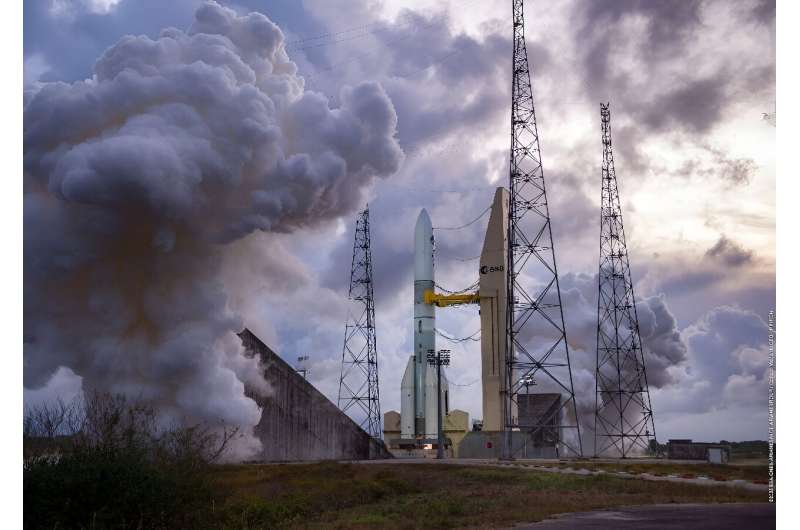
After four years of delays, Europe's new Ariane 6 rocket is set to blast off for the first time on Tuesday, carrying with it the continent's hopes of regaining independent access to space.
The inaugural flight of the European Space Agency's (ESA) most powerful rocket yet is scheduled to launch from Europe's spaceport in Kourou, French Guiana at 3pm local time (1800 GMT).
Since the last flight of the rocket's workhorse predecessor, Ariane 5, a year ago, Europe has been unable to launch satellites or other missions into space without relying on rivals such as Elon Musk's US firm SpaceX.
So many will be nervously watching the launch, hoping it can bring an end to a difficult era for European space efforts.
Ariane 6 sees 'first light' as mobile gantry is rolled back before fuelling begins
Tuesday, 09 July 2024 12:15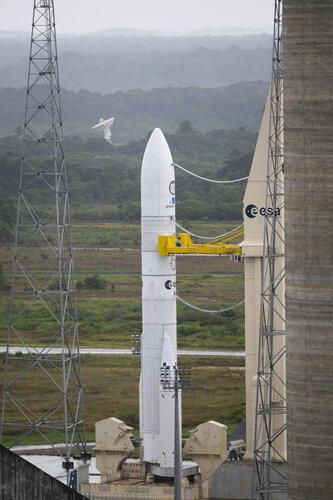 Image:
Ariane 6 sees 'first light' as mobile gantry is rolled back before fuelling begins
Image:
Ariane 6 sees 'first light' as mobile gantry is rolled back before fuelling begins Ariane 6 revealed as nine-story mobile building rolls back from the launch pad
Tuesday, 09 July 2024 12:00 Image:
Ariane 6 revealed as nine-story mobile building rolls back from the launch pad
Image:
Ariane 6 revealed as nine-story mobile building rolls back from the launch pad Russia’s nuclear threat to space is worse than a “Cuban Missile Crisis in space”
Tuesday, 09 July 2024 12:00
SpaceX sends up Space Coast's 50th rocket launch of the year
Tuesday, 09 July 2024 10:23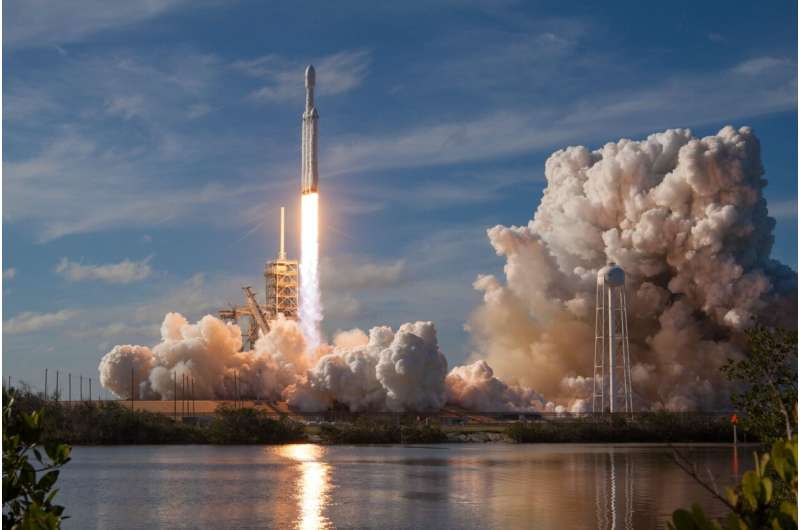
SpaceX continued the Space Coast's record rocket launch pace with a July 8 evening liftoff from Cape Canaveral, Florida.
A Falcon 9 rocket on the Turksat-6A mission carrying a Turkish communications satellite to a geosynchronous transfer orbit lifted off from Cape Canaveral Space Force Station's Space Launch Complex 40 at 7:30 p.m. Eastern time.
This was the 15th flight of the first-stage booster, which made a recovery landing downrange on the droneship Just Read the Instructions stationed in the Atlantic.
It was the 50th launch of the year from either Canaveral or neighboring Kennedy Space Center, with SpaceX responsible for 47 of them.
The other three have been from United Launch Alliance during a year that could see more than 100 missions fly for the first time, besting 2023's record of 72 launches.
Both SpaceX and ULA have more launch plans for later this month, including SpaceX's next Starlink launch, slated for July 12. ULA is targeting no earlier than July 30 for an Atlas V mission on the USSF-51 mission for the Space Force, while SpaceX is prepping for the return of billionaire Jared Isaacman to space on the Polaris Dawn mission no earlier than July 31.
House spending bill directs NASA to study asteroid and orbital debris missions
Tuesday, 09 July 2024 05:54

SpaceX launches Turkey’s first home-grown communications satellite
Tuesday, 09 July 2024 00:22

Ariane 6 the day of launch
Monday, 08 July 2024 23:18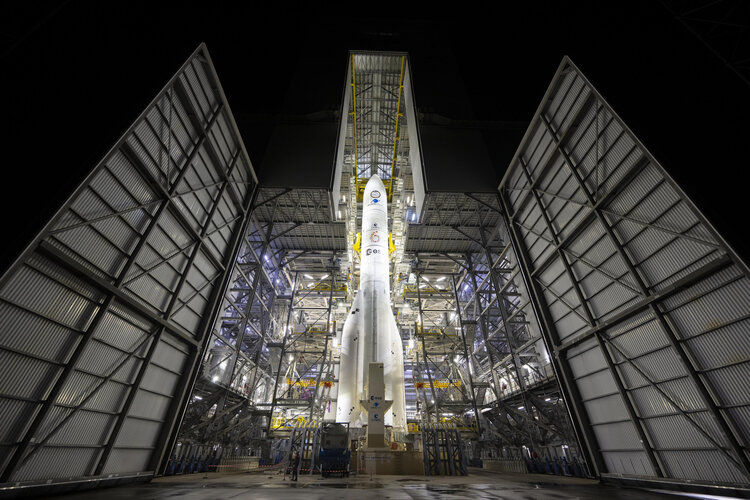 Image:
Ariane 6 the day of launch
Image:
Ariane 6 the day of launch Ariane 6 the day before launch
Monday, 08 July 2024 23:18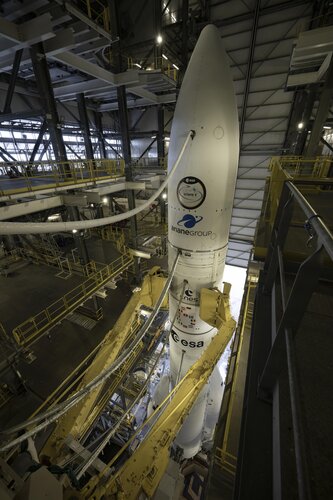 Image:
Ariane 6 the day before launch
Image:
Ariane 6 the day before launch Private companies key players in China's space development
Monday, 08 July 2024 20:22 The trial of Tianlong 3 a two-stage kerosene-liquid oxygen rocket developed by Beijing Tianbing Technology failed in Gongyi, Henan province, on Sunday. The company apologized on Tuesday for the accident.
Most private space enterprises were founded after November 2014, when the State Council started encouraging private capital to participate in space infrastructure construction for civil us
The trial of Tianlong 3 a two-stage kerosene-liquid oxygen rocket developed by Beijing Tianbing Technology failed in Gongyi, Henan province, on Sunday. The company apologized on Tuesday for the accident.
Most private space enterprises were founded after November 2014, when the State Council started encouraging private capital to participate in space infrastructure construction for civil us Search for extraterrestrial life focuses on detecting exoplanet atmospheres
Monday, 08 July 2024 20:22 Examining atmospheres around planets beyond our solar system is a crucial step in the search for extraterrestrial life. Astronomist Sebastian Zieba, using data from the James Webb Space Telescope, has been studying small rocky exoplanets. Although no signs of life have been detected yet, his research remains significant for future studies. Zieba graduated cum laude on 25 June.
"The holy gr
Examining atmospheres around planets beyond our solar system is a crucial step in the search for extraterrestrial life. Astronomist Sebastian Zieba, using data from the James Webb Space Telescope, has been studying small rocky exoplanets. Although no signs of life have been detected yet, his research remains significant for future studies. Zieba graduated cum laude on 25 June.
"The holy gr Tiny bright objects discovered at dawn of universe baffle scientists
Monday, 08 July 2024 20:22 A recent discovery by NASA's James Webb Space Telescope (JWST) confirmed that luminous, very red objects previously detected in the early universe upend conventional thinking about the origins and evolution of galaxies and their supermassive black holes.
An international team, led by Penn State researchers, using the NIRSpec instrument aboard JWST as part of the RUBIES survey identified th
A recent discovery by NASA's James Webb Space Telescope (JWST) confirmed that luminous, very red objects previously detected in the early universe upend conventional thinking about the origins and evolution of galaxies and their supermassive black holes.
An international team, led by Penn State researchers, using the NIRSpec instrument aboard JWST as part of the RUBIES survey identified th 

